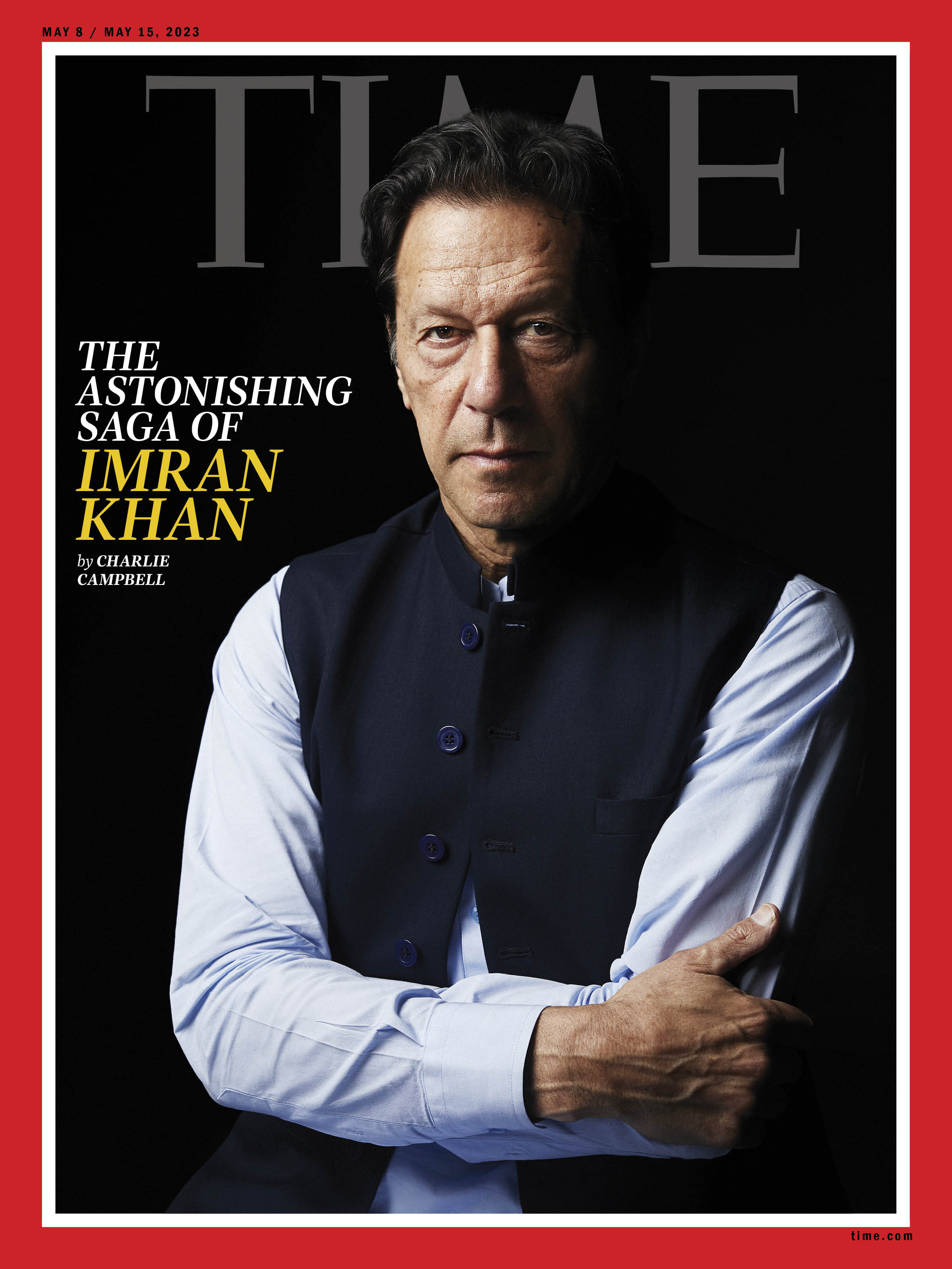Pakistan opposition leader Imran Khan will appear at an anti-graft tribunal Wednesday after his dramatic arrest sparked violent clashes and prompted his supporters to protest outside the military’s headquarters.
Khan was arrested Tuesday by paramilitary troops on the orders of the National Accountability Bureau, an autonomous anti-graft agency, in relation to a case involving a land deal. He was moved to its headquarters in the garrison town of Rawalpindi for questioning late into the night as angry protests erupted across Pakistan.

Read More: Exclusive: Imran Khan on His Plan to Return to Power
The Islamabad High Court said late Tuesday that the arrest was legal, according Khan’s lawyer, Intazar Hussain Panjutha. Khan’s legal team intends to challenge his detention and any request from the NAB to keep him in custody, Panjutha added.
The arrest came a day after Pakistan’s military issued a rare statement blasting Khan for repeating allegations that a senior military officer was behind his assassination attempt last year. The 70-year-old former cricket star has regularly criticized members of the military, Pakistan’s most powerful institution, since he was ousted as prime minister in April last year.
A prolonged detention for Khan, whose popularity has been surging ahead of an election that must be called by mid-August, threatens to destabilize Pakistan just as it looks to secure more cash from the International Monetary Fund to avoid default. The benchmark KSE-100 Index fell by 1.1% on Tuesday, the most in almost seven weeks.
Economic Dysfunction
“More protests, more disruption, more violence, and more political and economic dysfunction is on the way,” said Hasnain Malik, a strategist at Tellimer in Dubai. “Taking the painful decisions the economy needs and holding orderly elections will become even harder now.”
As news of Khan’s detention spread, his supporters in several cities took to the streets and clashed with security forces, who fired tear gas and tried to beat them back. A video from Khan’s party, Pakistan Tehreek-e-Insaf, showed some supporters wielding sticks and face masks entering the army’s headquarters in Rawalpindi and shouting angry slogans.
Protesters also stormed the official residence of the top regional commander in Lahore, a rare breach of an area controlled by the military. Both sites were later cleared.
Khan’s party reported at least four people were killed and 20 injured in separate clashes. Protesters also set fire to at least three buildings across Pakistan, while police said dozens of supporters have been arrested. The Interior Ministry suspended mobile broadband services in parts of the country, while complaints of slow internet service spread on social media.
Detention
It’s unclear if Khan will be released ahead of the election. The National Accountability Board in the past has detained former prime ministers and top government officials for lengthy periods of time before being released and ultimately found innocent. During Khan’s administration, Shehbaz Sharif, the current prime minister who was then in opposition, was arrested by the NAB and kept in custody for nearly seven months.
Sharif’s government attempted but failed to arrest Khan over charges in a range of cases in the past few months, in part to avoid stoking public anger that could further increase his popularity. Interior Minister Rana Sanaullah said Tuesday the government has no control over the NAB.
“Given that Khan was detained by paramilitary forces, this was likely the military acting directly,” said Michael Kugelman, director of the South Asia Institute at the Washington-based Wilson Center. “But if so, the civilian leadership, given their long and ugly vendetta with Khan, surely backed the move.”
The Pakistan military wields an outsized influence over politics as well as foreign and security affairs, having directly ruled the nuclear-armed nation for half of its history since its founding in 1947. Most prime ministers have depended on the support of the military to stay in power, including Khan.
Read More: 5 Takeaways from TIME’s Exclusive Interview With Ex-Pakistan Prime Minister Imran Khan
Pakistan is grappling with an economy in deep distress. Moody’s Investors Service has warned the nation could default without an IMF bailout as its financing options beyond June are uncertain. It downgraded the nation’s rating to an all-time low earlier this year.
Islamabad is struggling to restart a bailout program from the Washington-based lender, which has stalled after the government failed to meet some loan conditions.
“His arrest could foment unrest that weighs on economic activity, heighten the political confrontation between Khan’s party and the ruling coalition, and reduce the chances of International Monetary Fund aid,” said Ankur Shukla, a Bloomberg Economics analyst.
—With assistance from Francesca Stevens, Khalid Qayum, Srinivasan Sivabalan, Karl Lester M. Yap and Muneeza Naqvi.
More Must-Reads from TIME
- Caitlin Clark Is TIME's 2024 Athlete of the Year
- Where Trump 2.0 Will Differ From 1.0
- Is Intermittent Fasting Good or Bad for You?
- The 100 Must-Read Books of 2024
- Column: If Optimism Feels Ridiculous Now, Try Hope
- The Future of Climate Action Is Trade Policy
- FX’s Say Nothing Is the Must-Watch Political Thriller of 2024
- Merle Bombardieri Is Helping People Make the Baby Decision
Contact us at letters@time.com